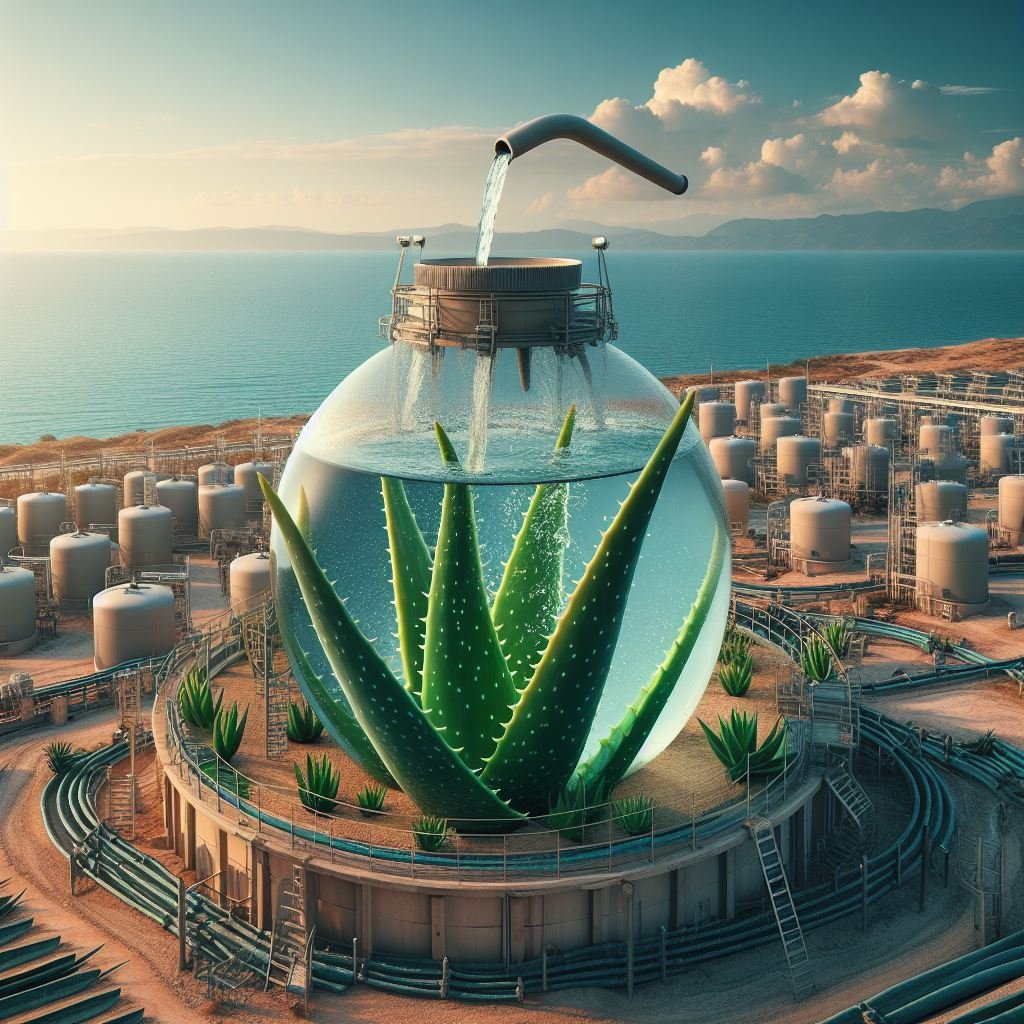Introduction to Aloe-Based Products in Environmental Sustainability
Discover How to Use Aloe-Based Products in the Water and Wastewater Industry to Combat Climate Change and Reduce Carbon Footprint.

Aloe vera, a plant renowned for its medicinal and cosmetic applications, is gaining recognition for its potential in environmental sustainability, particularly within the water and wastewater industry.
Known for its natural and sustainable attributes, aloe vera presents a promising solution in mitigating climate change and reducing carbon footprints.
The unique properties of aloe vera, including its biodegradability and non-toxicity, make it an efficient and eco-friendly option for various industrial applications.
In the context of environmental sustainability, aloe-based products stand out due to their minimal environmental impact. Their biodegradability ensures that they break down naturally without harming ecosystems, while their non-toxic nature makes them safe for both human health and the environment.
These characteristics are crucial as industries globally seek to adopt more sustainable practices and reduce their ecological footprints. Aloe-based products align perfectly with this global push, offering a viable alternative to conventional, often harmful, chemical products used in industrial processes.
The water and wastewater industry, in particular, has seen a growing demand for eco-friendly solutions. Traditional treatment methods often rely on harsh chemicals that can lead to long-term environmental damage.
Aloe-based products, however, provide a natural and sustainable alternative that can improve water treatment processes without introducing harmful substances into the ecosystem.
This shift towards greener solutions is not only beneficial for the environment but also aligns with regulatory trends and consumer preferences that increasingly favor sustainability.
By leveraging the inherent properties of aloe vera, the water and wastewater industry can enhance its operational efficiency while contributing to the global effort to combat climate change.
As we explore the various applications and benefits of aloe-based products in this industry, it becomes clear that integrating such natural solutions is a crucial step towards achieving a more sustainable and environmentally friendly future.
Key Advantages of Aloe-Based Products in the Water and Wastewater Industry
Aloe-based products offer several compelling advantages in the water and wastewater industry, particularly in enhancing water treatment processes, improving operational efficiency, and reducing reliance on chemical treatments. These benefits are instrumental in mitigating environmental impacts and promoting sustainability.
Enhanced Water Purification
Aloe-based products can serve as natural coagulants and flocculants. When used in water treatment, they effectively aggregate impurities and contaminants, facilitating their removal.
Case studies have shown that aloe extracts can significantly improve the clarity and quality of treated water. For instance, research indicates that aloe vera gel can reduce turbidity and enhance the overall purification process, making it a viable alternative to synthetic chemicals.
Reduction of Chemical Use
The integration of aloe-based products into water treatment protocols can markedly reduce the need for traditional chemical treatments.
This shift not only lowers the environmental footprint but also minimizes the production of harmful byproducts often associated with chemical usage.
Scientific studies underscore the efficacy of aloe vera as a natural alternative, highlighting its potential in decreasing the dependency on synthetic coagulants and flocculants.
Energy Efficiency
One of the notable advantages of aloe-based products is their potential to enhance energy efficiency in water treatment facilities.
By streamlining processes and reducing the need for extensive filtration and chemical dosing systems, aloe products can lower energy consumption.
This efficiency translates to less operational strain and reduced energy costs, as evidenced by real-world applications in various treatment plants.
Carbon Footprint Reduction
The cultivation and processing of aloe vera are inherently low-energy activities, contributing to a minimal carbon footprint.
Compared to synthetic alternatives, aloe-based products generate fewer emissions, thereby supporting efforts to reduce the overall carbon footprint of water treatment operations.
This environmental benefit is crucial in the industry’s pursuit of sustainable practices and climate change mitigation.
Economic Benefits
Long-term cost savings are another significant advantage of incorporating aloe-based products into water treatment processes.
By reducing the need for chemical purchases, minimizing waste disposal fees, and potentially lowering energy bills, these products offer substantial economic benefits.
Case studies and pilot projects have demonstrated that aloe-based solutions can provide a cost-effective alternative without compromising on treatment quality.
In summary, the use of aloe-based products in the water and wastewater industry presents a multifaceted approach to improving efficiency, reducing environmental impact, and achieving economic savings.
Through enhanced water purification, reduced chemical use, increased energy efficiency, and a lower carbon footprint, these products offer a sustainable solution for modern water treatment challenges.